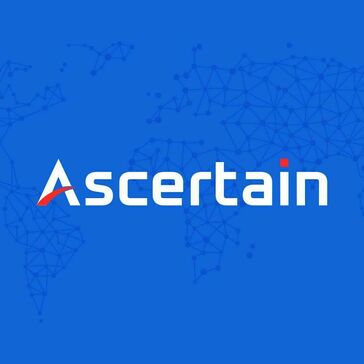Top Baas Softwares
BAAS software, or Backend as a Service software, revolutionizes how developers build applications by offering a ready-made backend infrastructure. This technology simplifies the process by providing essential backend components, such as databases, authentication, and cloud storage, through a unified platform. Developers can focus their efforts on front-end innovation and user experience, cutting d... Read More
12 companies found
Product Description
Finzly is a versatile software aimed at simplifying and enhancing the day-to-day operations of financial institutions. At its core, Finzly brings together different aspects of banking and financial services into one unified platform, making tasks easier to manage and more efficient. One of the key features of Finzly is its ability to streamline various banking processes. Whether it’s payments, fo... Read More
Users
- • No Data
Industries
- • No Data
Market Segment
- • No Data
Product Description
Synctera is a software platform designed to simplify how businesses manage partnerships with FinTech companies. If you're a financial institution looking to streamline your operations or a tech company aiming to integrate financial services, Synctera makes it easy. By offering tools that help with compliance, risk management, and regulatory requirements, Synctera takes the guesswork out of forming... Read More
Users
- • No Data
Industries
- • No Data
Market Segment
- • No Data
Product Description
Synapse is a versatile software solution designed to make your business operations smoother, more efficient, and highly organized. Whether you're a startup or an established enterprise, Synapse offers a range of features tailored to fit your needs without any unnecessary complications. One of Synapse's core strengths is its user-friendly interface, ensuring that team members of all technical back... Read More
Users
- • No Data
Industries
- • No Data
Market Segment
- • No Data
Product Description
Airapi is designed to help businesses smoothly manage and connect their various software applications through an easy-to-use API integration. Many companies today use multiple software tools, and it can be time-consuming to ensure they all work together seamlessly. Airapi addresses this by providing a straightforward way to link these tools, allowing them to share information effortlessly. With A... Read More
Users
- • No Data
Industries
- • No Data
Market Segment
- • No Data
Product Description
Youtap is designed to help businesses, whether big or small, manage their transactions and customer interactions more efficiently. Think of it as a versatile tool that simplifies how you handle payments, deals, and customer data. At its core, Youtap focuses on making transactions smoother for everyone involved. It supports different payment methods, from cash to digital wallets, which means your... Read More
Users
- • No Data
Industries
- • No Data
Market Segment
- • No Data
Product Description
BANKSapi is a software solution designed to cater specifically to the needs of financial institutions and businesses looking for streamlined and efficient banking processes. With a focus on simplicity and effectiveness, BANKSapi provides an array of services that help businesses manage their financial operations with ease. At its core, BANKSapi aims to integrate smoothly with existing financial s... Read More
Users
- • No Data
Industries
- • No Data
Market Segment
- • No Data
Product Description
FIS is a comprehensive software solution designed to help businesses manage their complex financial processes more effectively. Whether you're a small startup or a large enterprise, FIS provides the tools you need to streamline tasks such as billing, accounting, and financial reporting. Thoughtfully crafted to cater to different industries, this software is adaptable and scalable, ensuring it can ... Read More
Users
- • No Data
Industries
- • No Data
Market Segment
- • No Data
Product Description
Unit is designed for businesses looking to manage and streamline their banking and financial services more efficiently. Our software brings a user-friendly approach to integrating real-time banking features into your company's offerings. Whether you're a startup, small business, or an enterprise, Unit helps you navigate through the complexities of providing banking services to your end-users witho... Read More
Users
- • No Data
Industries
- • No Data
Market Segment
- • No Data
Square Instant Transfers
Product Description
Square Instant Transfers is your go-to solution for quick and efficient money transfers. Designed to make your financial transactions seamless, it allows businesses to access their funds immediately instead of waiting for the next business day. Whether you're running a small business or managing a larger enterprise, Square Instant Transfers takes the stress out of cash flow management. Imagine ha... Read More
Users
- • No Data
Industries
- • No Data
Market Segment
- • No Data
Ascertain FinTech Platform
Product Description
Ascertain FinTech Platform is designed to simplify and enhance your financial operations. Whether you are a small startup or an established business, our platform offers a range of tools to streamline your financial processes and improve your overall financial health. At Ascertain, we understand that managing finances can be overwhelming. That's why our platform is built to be user-friendly and a... Read More
Users
- • No Data
Industries
- • No Data
Market Segment
- • No Data
What is BaaS Software and How Does it Work?
BaaS software, or Backend as a Service, is a cloud-based model that provides web and mobile app developers with a way to link applications to backend cloud storage and APIs exposed by backend services. Essentially, it offers an outsourced solution to handle server-side operations, allowing developers to focus more on creating an engaging user experience.
Core Functionality
The main function of BAAS software is to provide server-based functionality, which includes databases, cloud storage, user management, push notifications, and integration with social networks. These services abstract much of the complexity required for backend development, allowing developers to implement functionalities without managing server infrastructure.
Benefits
One of the primary advantages of using BAAS software is speeding up the development process. Developers do not have to build backend infrastructure from scratch, which simplifies app development and accelerates time-to-market. BAAS software can also greatly reduce the cost of backend application development by providing pre-built components.
Data Management
BAAS software offers robust data management capabilities. It typically provides a scalable cloud database that can handle a large volume of data transactions. Developers can store, retrieve, and modify data through simplified API calls. This aspect of BAAS software ensures that applications can efficiently handle data without complex database management processes.
Authentication and User Management
User authentication and management are pivotal elements of any application. BAAS software streamlines this by offering integrated user authentication services. These services include registration, login, password reset, and user profile management. By utilizing pre-built authentication functionalities, developers can ensure secure user management in a fraction of the time it would take to build these systems manually.
Security
Security is a crucial component of BAAS software. Most BAAS platforms implement stringent security measures to protect sensitive application data. By utilizing features like encryption, secure data transmission, and automated backups, BAAS software helps to maintain data integrity and confidentiality.
Scalability
BAAS software is designed to be highly scalable, accommodating growing user bases effortlessly. As an application gains more users, backend requirements may change. The elastic nature of BAAS solutions allows applications to scale seamlessly, ensuring optimal performance.
Notifications
Push notifications are an integral part of the user engagement strategy in mobile apps. BAAS software often includes built-in push notification services, enabling developers to send real-time updates to users. These notifications can be triggered based on various user activities or app events, aiding in keeping users engaged and informed.
Integration with Third-Party APIs
Most BAAS solutions allow for easy integration with third-party APIs. This capability enables developers to enhance their applications without developing complex features independently. By leveraging BAAS software, developers can access a variety of services through existing APIs, such as payment processing or location services.
In summary, BAAS software provides a streamlined solution for app developers, handling complex backend processes and enabling them to prioritize frontend development, user interaction, and design. Through core functionalities like data management, user authentication, security, scalability, and integration, BAAS software remains integral to efficient software development practices.
What are the primary benefits of using BaaS software?
Simplified Development Process
BAAS software, or Backend as a Service software, is crucial in simplifying the application development process. By providing ready-to-use backend services, it allows developers to focus more on the frontend and core functionalities of their applications. This is particularly beneficial for small teams or startups who do not have extensive resources or expertise in backend development. It reduces the learning curve associated with complex backend technologies and decreases the time needed to bring an app from concept to market.
Cost-Effective Solution
One of the primary benefits of using BAAS software is cost efficiency. Building a robust and scalable backend from scratch can be financially draining and resource-intensive. BAAS software eliminates the need for dedicated backend resources, minimizing the initial costs and ongoing maintenance expenses. By leveraging shared infrastructure, businesses can scale economically as their needs grow, paying only for the resources they use.
Accelerated Time to Market
With BAAS software, the development cycle is significantly shortened. The pre-configured backend services enable the rapid development of applications, supporting quicker testing and iteration phases. This advantage is integral for businesses looking to stay competitive by launching their products swiftly. Quicker deployment translates into faster feedback collection from users, enabling timely improvements and feature enhancements.
Focus on Core Business Functions
By outsourcing backend management to a BAAS provider, companies can concentrate on their unique value propositions and customer-facing aspects of their applications. This focus allows the development team to innovate and refine user experiences without being bogged down by server management, security updates, and backend scalability challenges. Ultimately, this leads to a more polished and customer-centric product offering.
Enhanced Security and Compliance
BAAS software providers often include robust security measures and compliance certifications as part of their service offerings. This inclusion ensures that your application’s data management meets industry standards, protecting against data breaches and cyber threats. For companies handling sensitive information, this is particularly crucial, allowing them to rely on their BAAS provider’s expertise in maintaining secure infrastructures.
Seamless Integration and Scalability
Modern BAAS solutions come equipped with various integration possibilities, facilitating seamless interaction with third-party services, APIs, and software ecosystems. This feature empowers businesses to expand their application capabilities without redeveloping core components. Additionally, BAAS software supports scalability, automatically adjusting resources based on application demands. This flexibility ensures stable performance during traffic spikes or unexpected user growth, a critical feature for apps striving for an optimal user experience.
Maintenance and Updates
Using BAAS software relieves businesses from the continuous burden of maintaining server hardware, updating software, and ensuring backend reliability. The service provider manages server uptime and performance, allowing development teams to focus entirely on application improvements and customer satisfaction. Regular maintenance and updates by the BAAS provider ensure that systems remain up-to-date with the latest technology advancements without additional workload on the client’s team.
By understanding and leveraging these benefits, businesses can optimize their development strategies and resource allocation, ensuring more efficient and effective operations aligned with modern technological standards.
How can BaaS Software Enhance Data Security?
BAAS software, short for Backup as a Service, offers a range of solutions aimed at bolstering data security. Here are various ways in which BAAS software enhances data security:
Continuous Data Backup
By automating the process of data backup, BAAS software ensures that data is continuously saved at regular intervals. This reduces the risk of data loss due to unexpected failures or human errors. Continuous backups mean that systems can recover the most recent state of data with minimal loss, thereby providing an extra layer of security against data loss scenarios.
Encryption Protocols
A crucial aspect of BAAS software is its ability to encrypt data during transfer and storage. Encryption converts data into a coded format, making it unreadable without the appropriate decryption key. This protects the data from unauthorized access and ensures that even if data is intercepted during transfer, it remains secure from potential breaches.
Access Controls
BAAS software often comes equipped with sophisticated access control mechanisms. These controls regulate who can view or manipulate data, thus preventing unauthorized access. By implementing role-based access controls, organizations can ensure that only those with the proper credentials can interact with sensitive data.
Versioning
Versioning is a feature that allows users to retrieve and restore previous versions of files. This is beneficial in combating ransomware attacks, where hackers encrypt files and demand a ransom. With versioning capabilities, BAAS software lets users roll back to a version of files unaffected by such attacks, mitigating data compromise.
Data Integrity Checks
BAAS software performs checksum operations and other verification techniques to maintain data integrity. These checks ensure that data is not altered or corrupted during transfer or storage. Data integrity checks offer confidence that the data remains unchanged from its original form, enhancing its security over time.
Regular Security Updates
BAAS software providers consistently update their systems to counter emerging security threats. Regular updates mean that the software incorporates the latest security protocols and defenses. Staying updated, BAAS software helps protect organizations against evolving cyber threats, thereby enhancing data security.
Disaster Recovery Planning
The disaster recovery aspect of BAAS software ensures that in the event of data loss due to unforeseen circumstances, such as natural disasters, systems can quickly recover. This involves backing up data in geographically diverse locations, lessening the impact of localized disasters and safeguarding data integrity.
Compliance with Regulations
BAAS software often aids companies in meeting various regulatory requirements related to data protection. Compliance with regulations such as GDPR or HIPAA is crucial for businesses handling sensitive data. By providing tools and procedures aligning with these regulations, BAAS software helps ensure data security across all levels of an organization.
By leveraging these aspects, BAAS software proves invaluable in securing organizational data. Implementing various security measures helps create robust data protection strategies, minimizing risks and enhancing data integrity.
What industries commonly use BAAS software?
BAAS software, or Backend as a Service, is a cloud computing model that provides developers with the essential back-end components needed to build web and mobile applications. By leveraging this technology, companies can save time and resources otherwise spent on setting up servers, managing databases, and handling user authentication. Below are some key industries that frequently incorporate BAAS software into their operations:
1. Healthcare
In the healthcare industry, data security and compliance with regulations such as HIPAA are crucial. BAAS software helps medical institutions ensure secure data handling and storage. Additionally, it supports the development of patient portals, telehealth applications, and health monitoring systems. Through BAAS solutions, healthcare providers can focus on delivering quality care without the burdens of managing infrastructure.
2. Finance and Banking
Banks and financial services harness BAAS software to streamline backend operations and improve customer-facing applications. Security and scalability are vital in finance, where backend services handle transactions, data storage, and authentication processes. By using BAAS, institutions can focus on developing innovative services, such as mobile banking apps and online portals, while maintaining robust security.
3. Retail and E-commerce
The retail sector benefits significantly from BAAS solutions in creating seamless e-commerce experiences. With BAAS software, retailers can manage high volumes of transactions, sync data across multiple systems, and personalize customer interactions. These services allow for rapid deployment of online storefronts, inventory management systems, and user analytics, providing retailers the agility needed to keep up with market trends.
4. Media and Entertainment
Media companies leverage BAAS software for content distribution, streaming services, and audience engagement platforms. These solutions offer the necessary backend infrastructure to handle high traffic and store large volumes of data, essential in streaming content to users worldwide. By utilizing these services, media companies can focus on content creation, leaving the technical aspects of distribution to specialized BAAS providers.
5. Education
Educational institutions utilize BAAS software for developing e-learning platforms, student management systems, and collaboration tools. The technology supports real-time communication, data storage, and secure access, facilitating virtual classrooms and remote learning environments. BAAS services enable educators to deliver quality educational content without the concerns of backend management.
6. Gaming
The gaming industry is highly reliant on robust backend solutions to support multiplayer environments, leaderboards, and in-game purchases. BAAS software assists game developers by providing scalable and secure backends necessary for processing large amounts of user data. These solutions enable a seamless gaming experience by ensuring reliable server performance and efficient data management.
7. Telecommunications
Telecommunication companies employ BAAS software for managing backend operations crucial to delivering reliable services. These solutions support customer management systems, billing platforms, and network analytics. By adopting BAAS, telecom providers can focus on enhancing service delivery and customer engagement instead of handling infrastructure complexities.
Across these industries, BAAS software acts as a catalyst for innovation and operational efficiency. By offloading backend management to these sophisticated services, companies can concentrate on building user-centric applications and exploring new business opportunities. This technology continues to transform industry after industry, enabling businesses to respond to the dynamic demands of the modern digital landscape.
How does BaaS software support app development?
BaaS software, or Backend-as-a-Service software, significantly streamlines the app development process. By providing pre-built functionalities and cloud-based backend services, BaaS software eliminates the complex and time-consuming tasks traditionally involved in backend development.
Simplifying Backend Development
BaaS software offers developers a library of APIs and tools to manage backend processes without the need to create them from scratch. This liberates developers from dealing with servers, databases, and other backend components, allowing them to concentrate on the core functionalities of their applications. As a result, BaaS software reduces the development time and speeds up the deployment cycle.
Handling Authentication and User Management
User authentication is a critical part of app development, involving security features and database management. BaaS software simplifies this by offering built-in authentication services, supporting various methods like email/password, OAuth, and social login. This ensures secure access and efficient user management systems, freeing developers from implementing and maintaining these mechanisms themselves.
Scalable Data Management
Handling data is a vital but challenging part of app development. BaaS software provides scalable and secure data storage solutions. Developers can efficiently manage databases using cloud-based storage solutions provided by BaaS software, ensuring they accommodate growth and data demands without worrying about server configurations or data limitations.
Enabling Push Notifications
Incorporating timely and relevant communication with users is an essential feature in modern applications. BaaS software facilitates this by providing integrated push notification services. Developers can easily configure and manage push notifications without manually setting up server-side logic, offering a seamless communication channel with app users.
Streamlining API Integration
BaaS software supports seamless API integration, providing connectivity with third-party services, enhancing app functionalities. Through BaaS, developers gain access to a variety of pre-configured, secure, and efficient API integrations, which accelerates the process of incorporating external services such as payment gateways or social media interfaces into their applications.
Ensuring Offline Access
BaaS software supports offline access capabilities, improving user experience by allowing applications to function without an internet connection. It achieves this through local data storage, synchronization features, and network detection mechanisms, enabling apps to maintain usability and data integrity in offline scenarios.
Supporting Real-time Data and Analytics
Real-time data and insights are crucial for enhancing app performance and user engagement. BaaS software provides real-time database services and analytics, enabling developers to access and analyze user activities, optimize app functionalities, and make data-driven decisions. This reduces the complexity developers face managing real-time data and monitoring user behaviors.
Offering Security and Compliance
Concerns about data security and compliance are paramount in app development. BaaS software provides built-in security measures, such as data encryption and regular security updates, ensuring that applications meet industry standards. By handling security protocols, BaaS software allows developers to focus on application logic while ensuring compliance with legal and regulatory requirements.
In summary, BaaS software supports app development by simplifying backend processes, managing user authentication, offering scalable storage, enabling efficient integration, and providing security solutions. By doing so, it allows developers to focus on the aspects of app development that matter most, creating engaging user experiences and delivering applications to market faster.
What features should you look for in BAAS software?
When evaluating BAAS software, it's crucial to focus on the key features that will support your business needs effectively. BAAS, or Backend as a Service, offers a wide range of functions designed to streamline app development and backend management. Here are the essential features to consider:
User Authentication and Management
Efficient user authentication is a foundational feature in BAAS software. Look for software that provides secure user registration, login mechanisms, password recovery, and social media integration. These features ensure seamless user experiences while maintaining robust security protocols.
Data Storage and Management
A core component of BAAS software is its data handling capability. It should offer scalable data storage that facilitates easy access, retrieval, and storage of data. Pay attention to the software's support for structured and unstructured data, as well as its integration with external databases and compliance with data protection regulations.
Real-Time Data Synchronization
Real-time data synchronization enables instant updates across devices, ensuring that users always have access to the latest information. This feature is particularly beneficial for apps that rely on live data, such as chat applications or collaborative tools. Ensure that the BAAS software supports real-time syncing to enhance user engagement.
API Integration
BAAS software should provide robust API integration capabilities. This allows developers to connect with third-party services and extend the functionality of their applications. Look for software with a comprehensive set of APIs that are easy to implement and support RESTful and GraphQL protocols.
Push Notifications
Push notifications are crucial for engaging users and driving app interaction. BAAS software should offer a flexible notification system that allows for targeted, scheduled, and automated messages. Ensure that the software supports various types of notifications to enhance user experience and retention.
Cloud Functions
Serverless cloud functions provide developers with a way to execute backend code without managing infrastructure. This feature helps in scaling applications efficiently. BAAS software should allow for easy creation, deployment, and management of cloud functions, reducing overhead and improving app performance.
Analytics and Monitoring
Analytics provide insights into app performance and user behavior. Look for BAAS software that includes comprehensive analytics and monitoring tools. Features like user tracking, event logging, and data visualization are essential for optimizing app usage and identifying areas for improvement.
Security and Compliance
Security is paramount in BAAS software. Ensure that it supports data encryption, secure data transfer protocols, and compliance with industry standards like GDPR, HIPAA, or CCPA. The software should also offer robust tools for monitoring, detecting, and addressing security threats.
Scalability
The ability to scale is crucial for growing businesses. BAAS software should adapt to increasing user demands without performance degradation. Look for solutions that offer flexible pricing models that align with your growth trajectory and technical support for scaling needs.
Configuration and Customization
Configuration and customization options allow your app to evolve over time. BAAS software should offer the flexibility to adjust configurations and customize features to meet specific requirements without heavy reliance on developers.
By focusing on these key features, businesses can leverage BAAS software to effectively manage backend operations, drive app functionality, and enhance the overall user experience.
How can BAAS software improve backend efficiency?
BAAS software, or Backend as a Service software, is a cloud-based solution designed to provide backend services to developers. It replaces manual server and infrastructure management, offering a more streamlined approach to backend operations. By automating various backend tasks, BAAS software enhances efficiency in several ways.
Reduces Development Time
BAAS software accelerates the development process by providing pre-built components, such as databases, user authentication, and file storage. Developers can integrate these components directly into their applications. This eliminates the need to build backend infrastructure from scratch, significantly reducing development time.
Simplifies Maintenance
With BAAS software, maintaining a backend infrastructure becomes less complex. Service providers handle server maintenance, updates, and other administrative tasks. This allows developers to focus on writing code and improving functionality instead of managing backend logistics.
Enhances Scalability
BAAS software offers scalability to accommodate growing user demands. When an application experiences an increase in traffic, these platforms can quickly adjust resources such as bandwidth and storage. This automatic scalability prevents downtime and improves user experience.
Increases Security
Security is crucial in any software application. BAAS software providers implement robust security measures, including encryption, authentication, and access controls. Developers benefit from high-level security without needing to manage it themselves, allowing them to focus more on the application’s core features.
Streamlines Integration
Integrating third-party services is simplified with BAAS software. Many platforms offer ready-made integrations with popular services, such as payment gateways and social media platforms. Developers can easily connect these services to their applications, improving functionality without the hassle of building custom integrations.
Offers Cost-Effectiveness
BAAS software models are usually subscription-based, eliminating the need for heavy upfront investment in server infrastructure. This pay-as-you-go model aligns costs with usage, which can be more economical, especially for startups and smaller development teams.
Provides Real-time Data Management
Real-time data handling is crucial for modern applications. BAAS software often includes real-time database capabilities and APIs. This setup enables instant data access and updates, enhancing user experience and application responsiveness.
Facilitates Rapid Deployment
Deployment of applications becomes more efficient with BAAS software. With backend management centralized, deploying changes or new features becomes quicker. This rapid deployment ensures that applications can evolve continuously, maintaining competitiveness and relevance.
Minimizes Redundancy
By standardizing backend processes and components through BAAS software, repetitive tasks are minimized. This reduces the chance of errors and redundant work, leading to greater consistency in development output.
Empowers Innovation
With backend tasks automated, developers have more time for creativity and innovation. They can implement new features and experiment with different functionalities, driving improvement in app quality and user experience.
By adopting BAAS software, development teams benefit from a more efficient backend that supports faster growth and better user experiences. The ability of BAAS software to support scalability, security, and ease of use helps teams focus on building effective applications without getting bogged down by backend complexities.









